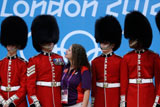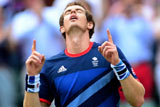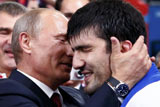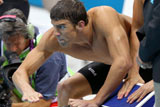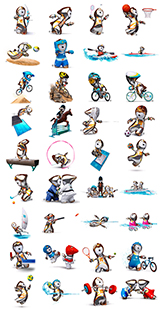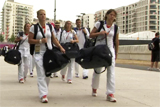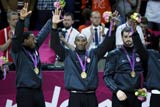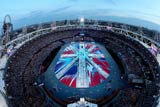Speed and versatility key to NZ's hockey tilt
Updated: 2012-06-15 17:04:16
( Agencies)
|
|||||||||||
CHRISTCHURCH - Speed, speed and more speed would be something to look out for in the London Olympics women's hockey tournament, New Zealand's coach said on Friday after he named his final squad for the Games.
Mark Hager, who has been in charge of the New Zealand women's side since shortly after the 2008 Beijing Games, said identifying pace and versatility had been key to help pick his squad for London, where they have been drawn in Pool B with Argentina, Germany, Australia, the US and South Africa.
"In this modern age of hockey you really need speed in that midfield," Hager told Reuters in a telephone interview on Friday. "You look at the top teams, the midfield lines are so quick and that assists you in getting from defence to attack in a minimum amount of time.
"It's very difficult to coach against speed unless you have someone who can match those people with the same speed.
"It's easier to beat you with pure pace, you can tell someone how to defend it but if you can't match them for that pure pace it's very difficult to contain."
The 48-year-old Hager, nicknamed 'Horrible' after the cartoon Viking, represented Australia at two Olympics and scored 179 goals in 231 appearances and he said another factor in his selection on Friday was the versatility of the players.
Several were able to transition easily from defensive positions into midfield and to push into attack, which allowed them to maintain the team pattern no matter who was selected.
"We have been deliberating for four years on what our group will be," he said.
"We have been up and down on who we want to pick and there was a lot of debate, but the people that we have picked have had more of a consistent year and cover us in so many different positions.
"It was very close on quite a few calls but we felt for the balance of the group, the team we have picked is the best one to give us the best chance."
Improved results
The 48-year-old Hager took over the New Zealand women's team after the Beijing Olympics and set about rebuilding the programme after a series of retirements.
He chose to give youth a chance and tried to instil an attacking brand of hockey. The approach has borne out results.
The team have improved from 12th in the world to sixth, with a silver medal from the 2010 Commonwealth Games in Delhi, where they lost to Australia in a pulsating final.
"Maybe we should have won the gold (in Delhi) because we did let the game get away from us, but to still come away with the silver was hugely beneficial to help grow this young group as a unit," Hager said.
"I think we made really good progress last year. I would say we probably improved about 20 percent in 2011.
"(It) has been a bit of a slow start, but as the year is going on I feel the players are improving and if we can grow another 10 to 15 percent by the Olympics then we give ourselves a good chance of winning a medal."
Hager said the team had benefited from a centralised training programme over the first half of the year, which included two Four Nations tournaments in New Zealand and test series away against China and South Korea.
"We have had some teething problems because the girls aren't used to it (a centralised programme).
"I think they have started to realise what it means to be centralised, in effect to be a professional athlete without getting the big dollars.
"We believe we have the talent, we just need to expose them to quality coaching, training, sports science and conditioning."
As the team became more accustomed to the 'professional' programme Hager said the young side would probably be playing at their peak as the Rio Games approached in 2016.
"The average age of the squad is 23. It's quite a young group and one I would hope that we can keep together for at least the next two years after the (London) Olympics.
"If you look at the Olympics a lot of the team medallists, their average age has been around 27 or 28 (because) they're more mature in mind, body and have experience on their side.
"This team can compete at the (London) Olympics but I think the next four years we will see some real progress and results."
Medal Count |
||||
| 1 | 46 | 29 | 29 | |
| 2 | 38 | 27 | 22 | |
| 3 | 29 | 17 | 19 | |
| 4 | 24 | 25 | 33 | |
| 5 | 13 | 8 | 7 | |
| 6 | 11 | 19 | 14 | |


